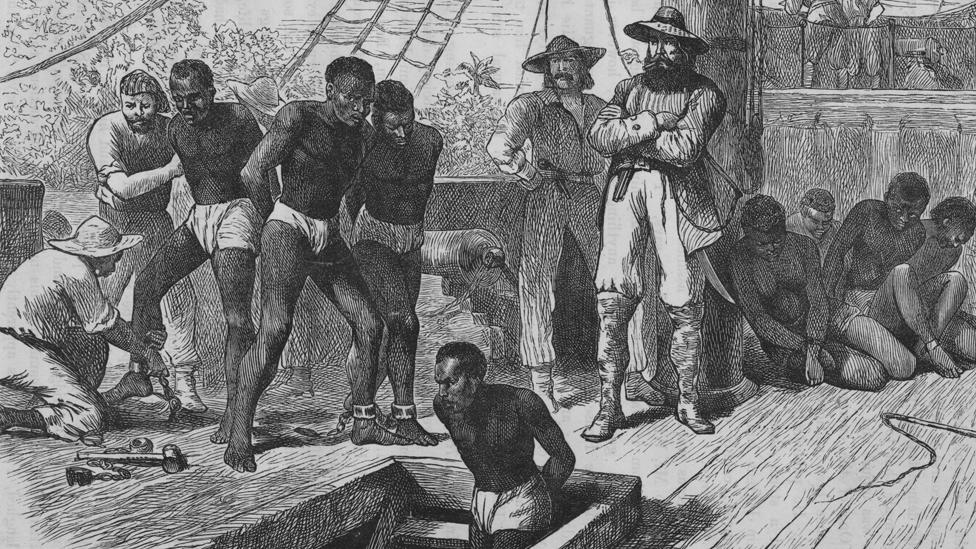Trinity College Dublin to look at its slavery and colonial links
- Published
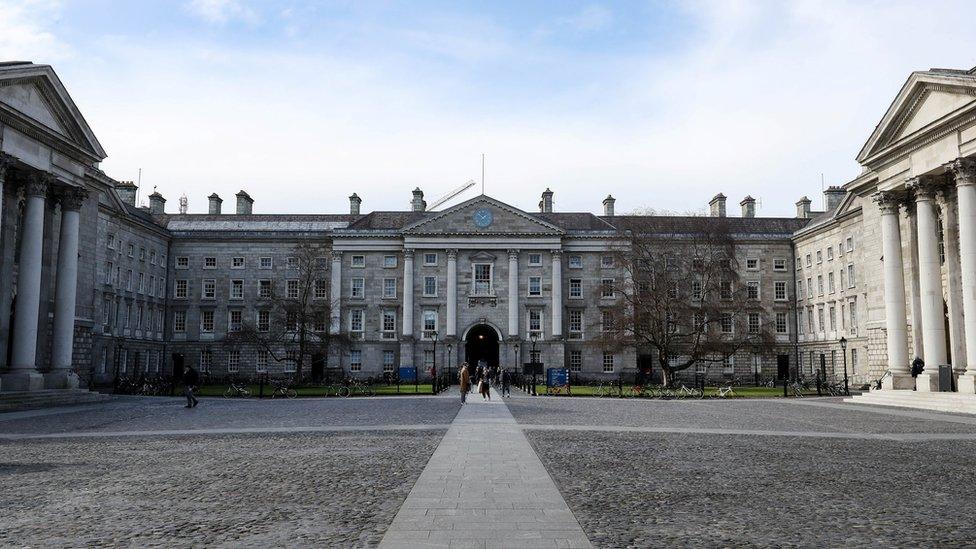
Trinity College Dublin was established by royal charter in 1592
Ireland's oldest university is to begin a two-year investigation into its links with slavery and the British Empire.
Trinity College Dublin (TCD) said the project would "examine, interrogate and reflect on its complex colonial legacies".
For example, TCD's library is named after the philosopher George Berkeley, an 18th Century slave-owner.
Some universities in the UK have also begun investigating their historic links with slavery.
There have been some calls for statues at some universities to be removed, like the statue of Cecil Rhodes at Oxford University.
TCD's provost Dr Patrick Prendergast said the investigation had been prompted by "debates that arose from the Black Lives Matter movement".
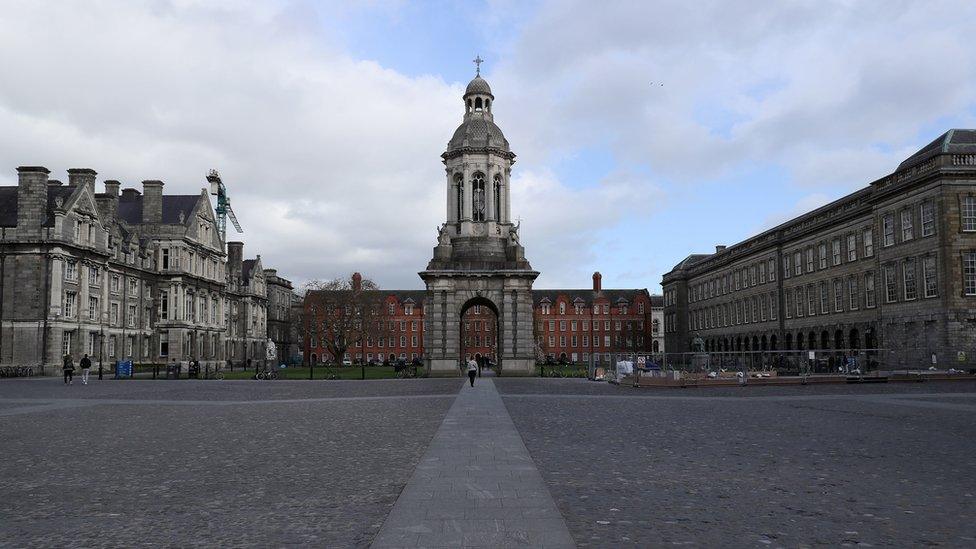
Trinity currently has about 18,000 undergraduate and postgraduate students
The former Irish President Mary McAleese, who is also TCD's chancellor, will be on the advisory board overseeing the project.
'Exporter of colonial ideologies'
Trinity was originally founded in 1592 and the university said its history was "bound up within wider narratives about colonialism, plantation and imperialism at home and abroad".
In a statement, the university said that in the past TCD had a "curriculum to meet the demands of the British Empire".
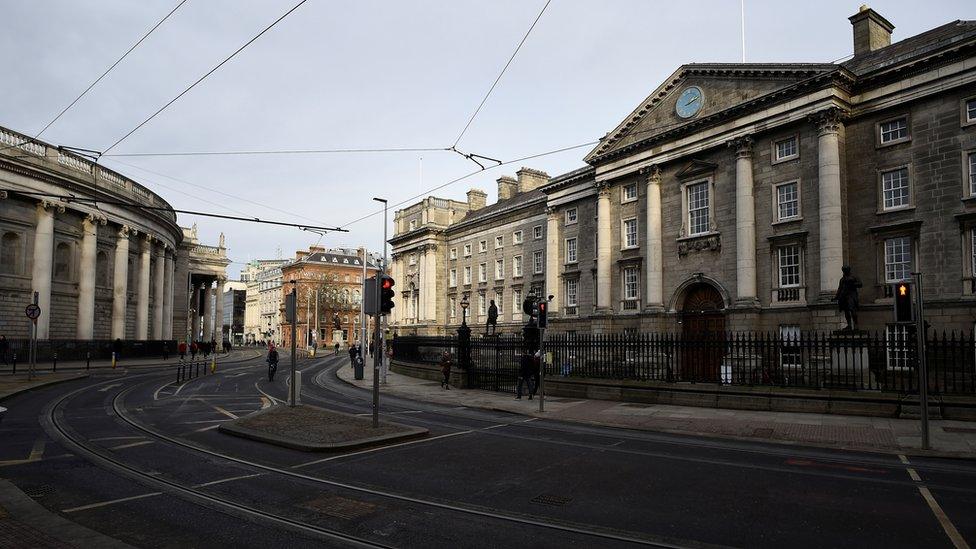
Trinity was built on the site of a former monastery which was dissolved under Henry VIII
"By the mid-19th Century it had evolved into an exporter of colonial ideologies and servants," TCD said.
"Connections have been established between college departments and imperial activities in India, Africa and East Asia involving current and former departments ranging from anatomy to zoology, from divinity to engineering."
As a result, TCD houses many collections of historical manuscripts and artefacts collected from those areas.
The university cited George Berkeley, the 18th Century Anglican Bishop of Cloyne, as one example of its past links to slavery.
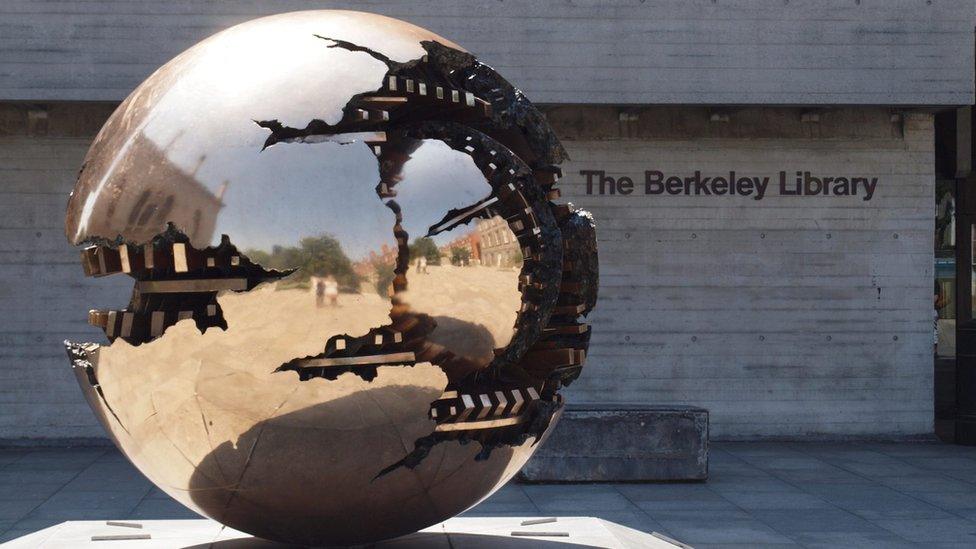
Trinity's Berkeley Library is an influential modernist building which opened in 1967
Berkeley is one of TCD's most famous scholars and one of the world's most noted philosophers.
However, he bought and later sold four slaves in the 1730s.
'Debating ideas is what we do'
Trinity also said it had benefitted from land confiscations when Ireland was colonised in the 16th and 17th centuries.
However, the university also drew attention to a number of other prominent historical students who had opposed slavery.
For instance, TCD said the 18th Century philosopher and statesman Edmund Burke had been critical of slavery and supported early movements to abolish it.
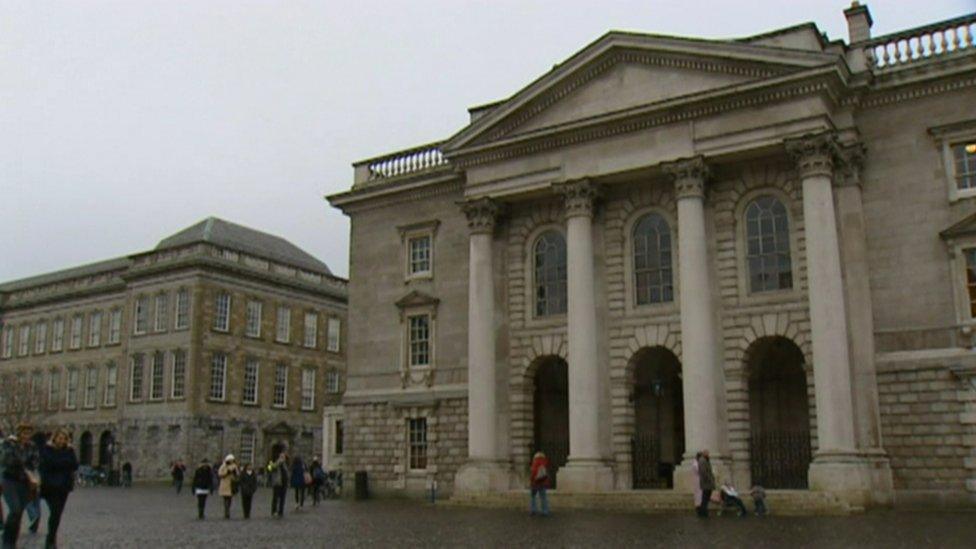
Trinity College is Ireland's oldest university
The investigation into TCD's links with slavery and colonialism is due to take two years and the findings will be published.
The Colonial Legacies Project will be led by historians Dr Ciaran O'Neill and Dr Patrick Walsh.
Dr O'Neill said that the project would be "an opportunity to have a critical conversation about Trinity's multiple connections to empire".
"Ideally that would take place in an open and transparent process that is as inclusive as possible," he said.
"We are a university community and debating ideas, legacies, and identities is a key part of what we do."
Related topics
- Published17 June 2020
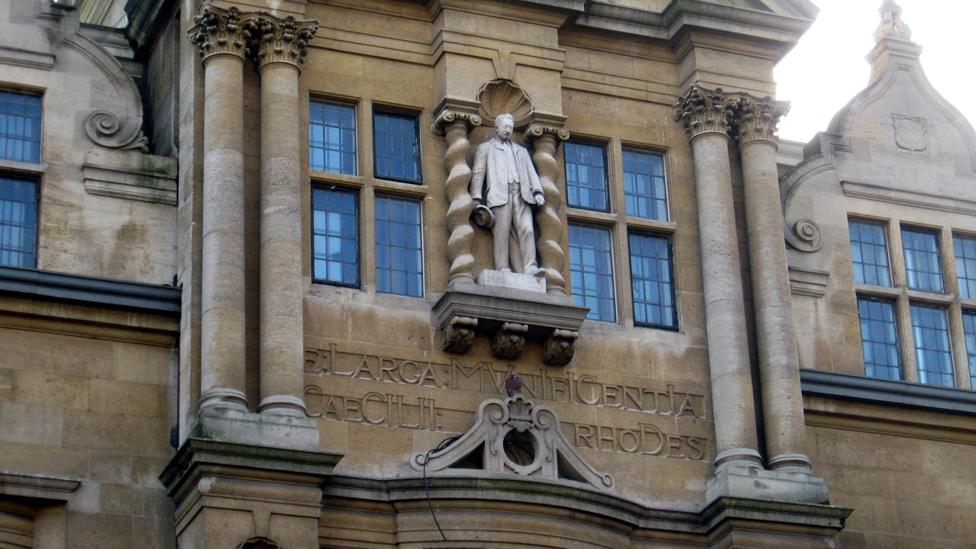
- Published30 April 2019
